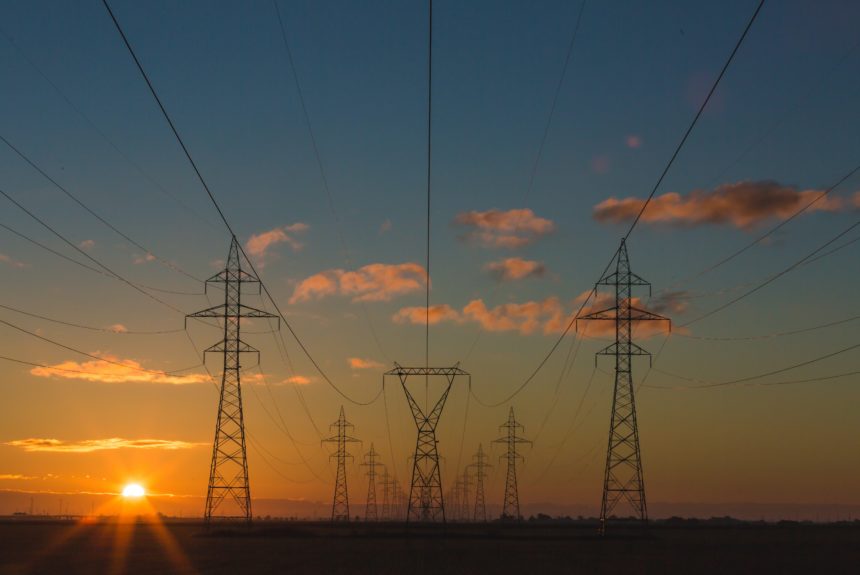By Rich Powell
As Congress considers energy legislation throughout the remainder of this session, their solutions should be ambitious but also pragmatic. Too often, energy policy is oversimplified: renewables versus fossils, economy versus environment, 100% reductions globally versus inaction here at home. These are false choices.
The reality is this: solutions must follow a technology-inclusive, pro-America agenda. Policy should make the global clean energy transition cheaper and faster – not more difficult. Clean investments not only will reduce global emissions, but also will provide for a more reliable, resilient grid in the U.S.
Globally, carbon dioxide (CO2) emissions have fallen an estimated massive 8 percent in 2020 due to the COVID-19 virus – that’s more than half of annual U.S. emissions.
But, cheering that news is falling into the climate trap. They resulted from a global economic crash. Near-term emission reductions driven by COVID-19 also come at an enormous economic cost—$3,200-5,400 per ton of CO2 reduced, on average this year. Less energy use is not the key to sustainable clean air. According to the International Energy Agency, a perfectly healthy global economy can simultaneously use more energy and emit less CO2.
At a time when our nation is grappling with a pandemic, and the West Coast is both on fire and struggling with rolling blackouts, reliable and resilient electricity has never been more essential. And there is a lot we can do together as a country to get there.
So, what should we expect ahead?
Imagine if our hospitals caring for patients with COVID-19 were attempting to rely on 100% variable energy with slim options when the sun isn’t shining and the wind isn’t blowing. Imagine being asked to turn your lights and air conditioning off in order to avoid blackouts when it’s 100 degrees outside. This should make us all appreciate the value of uninterrupted power.
Those who have long called for “de-growth” or limiting capitalism as essential to solving the climate challenge have been disproven. Clearly, the solution to this global challenge is not less economic activity – it’s even more growth – more development, more prosperity, globally – in ways that emit no CO2.
We must also keep the big picture in mind. As Congress debates appropriate recovery funding and new energy legislation, China built new coal plants roughly 20% of the entire U.S. coal fleet last year. Despite China’s recent net-zero pledge, they continue to greenlight dozens of new coal power plants without carbon capture today, which will ‘lock in’ emissions for decades to come.
China’s climate problem is our climate problem, just like their virus problem became our virus problem. This is precisely why we don’t like the false choice that if China and the rest of the developing world aren’t doing anything to slow their CO2 emissions, then the U.S. shouldn’t either.
The rest of the world is purchasing high-emitting Chinese technology, like their coal plants without carbon capture in Pakistan, because they can’t yet afford the “green premium” required for most clean energy. Further, China’s stronghold on many international markets for energy increases their soft power. China’s government clearly sees competitive advantage in their early re-emergence from COVID. We must move quickly.
Fortunately, there are policy solutions.
Scaling up a new technology follows the “S curve” — it starts slow, picks up speed during rapid growth, then tapers off as technologies become commercially viable. Congress can help the U.S. energy economy and reinvigorate American exports, while reducing CO2 in the coming decades, with four key steps.
First, we must innovate. That means developing clean technologies the world wants to buy that give America a competitive advantage. Big energy projects can’t be done in someone’s basement with a small angel investor like a new food delivery app. And we must drive progress with public investments in close partnership with the private sector, with very clear accountability at the U.S. Department of Energy to produce huge cost and performance improvements.
Second, unnecessary regulatory hurdles needlessly slow down projects. We can only build clean energy technologies and put more energy workers back on the job as fast as we can permit the projects, such as reforms to the National Environmental Policy Act (NEPA), as House Republicans proposed this week.
Third, we must deploy technology to prove it at scale and bring down costs. Smart incentives will help innovators “learn by doing,” delivering the technologies in the 2020s that utilities will need in the ‘30s and ‘40s to reach their net zero goals by 2050. Working backward from that goal, they will need to build new zero-emitting 24/7 technology by 2035. Let’s work with them, not against them.
Fourth, we must export the proven technology to new clean energy markets. American energy manufacturing jobs will reappear when we have products and export support ready for rapidly growing countries like Nigeria or Indonesia to buy.
Solutions must work with markets, not against them.
Falling into the false choices trap means we miss the politically and technically realistic debate we need. Done right, we can advance stronger policies that commercialize the cutting-edge clean technologies needed to create new markets and new jobs, and lower emissions.
Republicans have real, innovative, free-market solutions to climate change that will grow American jobs and incentivize more clean energy investments here and abroad. That sounds like a win-win to me.
Rich Powell is the Executive Director of ClearPath, a conservative clean energy innovation organization.
The views and opinions expressed are those of the author’s and do not necessarily reflect the official policy or position of C3.
